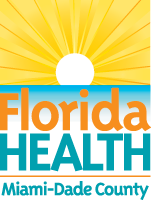Dangers of Carbon Monoxide
September 07, 2017
CARBON MONOXIDE DANGERS
--Generator safety precautions can help prevent poisoning—
TROPICAL STORM/HURRICANE INFORMATION SHEET
Miami, Fla. –
As Floridians begin the task of preparing for hurricane Irma, the Florida Department of Health (DOH) is urging the public to avoid carbon monoxide (CO) exposure by taking precautions with gas-powered appliances and charcoal or gas grills.
Carbon monoxide is an invisible, odorless, tasteless gas, and is highly poisonous. Depending on the level of exposure, CO may cause fatigue, weakness, chest pains for those with heart disease, shortness of breath upon exertion, nausea, vomiting, headaches, confusion, lack of coordination, impaired vision, loss of consciousness, and in severe cases, death.
DOH recommends the following precautions to help prevent carbon monoxide poisoning:
- Do not burn charcoal or gas grills inside a house, garage, vehicle, tent or fireplace.
- NEVER use a generator indoors, including in homes, garages, basements, crawl spaces, and other enclosed or partially enclosed areas, even with ventilation. Opening doors and windows or using fans will not prevent CO build-up in the home.
- ALWAYS locate the unit outdoors on a dry surface, away from doors, windows, vents, and air conditioning equipment that could allow CO to come indoors. Follow the instructions that come with your generator.
- Install battery-operated CO alarms or plug-in CO alarms with battery back-up in your home, according to the manufacturer’s installation instructions. The CO alarms should be certified to the requirements of the latest safety standards for CO alarms (UL 2034, IAS 6-96, or CSA 6.19.01).
- Test your CO alarms frequently and replace dead batteries.
- REMEMBER that you cannot see or smell CO and portable generators can produce high levels of CO very quickly.
- If you start to feel sick, dizzy, or weak while using a generator, get to fresh air RIGHT AWAY. DO NOT DELAY.
- If you have a poisoning emergency, call your nearest Florida Poison Information Center at 1-800-222-1222. If the victim has collapsed or is not breathing, call 911 immediately.





Connect with DOH